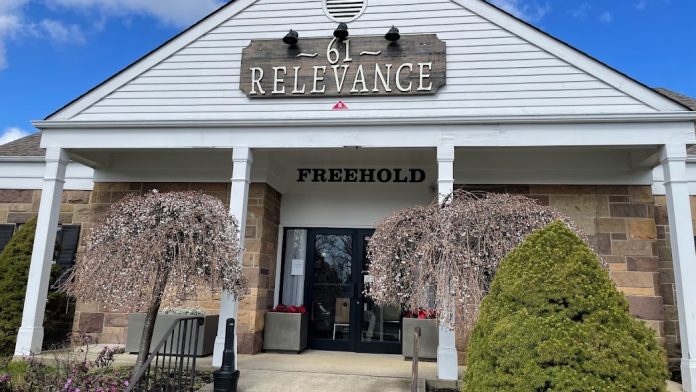
Fentanyl relapse is when someone who has stopped using fentanyl returns to using it again. It matters because fentanyl is incredibly potent and dangerous—just a small amount can lead to overdose and even death. So every effort to prevent relapse is quite literally about staying alive.
In a recent study published in the Journal of Neuromedicine, scientists found that brain systems involved in fentanyl relapse are similar across opioid drugs. The study also emphasized the importance of medication-assisted and behavioral treatments for fentanyl relapse cases.
Relapse is often part of the recovery journey, but that doesn’t mean it’s inevitable. Knowing that it can happen is the first step in preventing it. Relapse usually follows a pattern: emotional relapse, where you’re not thinking about using but your emotions and behaviors are setting you up for a possible relapse; mental relapse, where the idea of using starts to seem appealing; and physical relapse, where you actually use the drug.
It’s important to catch yourself in the emotional or mental relapse stages before it leads to physical relapse. This is where you can intervene and use the strategies you’ve learned to stay on track.
Relapse can be disheartening, and it can make you feel like you’ve lost all progress. But it’s important to remember that recovery is not a linear process. Each step, even a step back, is part of your journey to a healthier life. A relapse can be a learning experience, giving you insight into what works and what doesn’t in your recovery.
Part of managing fentanyl relapse is knowing what triggers you—situations, feelings, people, or anything else that can make you want to use it again. It’s different for everyone, so take the time to learn what yours are.
High-risk situations are those that make you more likely to relapse. They can be external, like being in a place where you used to use drugs, or internal, like feeling stressed or lonely.
But once you know how to spot them, you can avoid them or prepare to face them without reaching for fentanyl.
Emotional triggers can be things like anxiety, depression, or even boredom, while environmental triggers are more about your surroundings—people you used to use with, or places where you used.
To manage these triggers:
Of course, the goal isn’t to avoid all negative emotions or situations—that’s not realistic. But you should have a plan for dealing with them without using fentanyl.
While you can’t plan for everything, you can plan for those high-risk situations and triggers—both emotional and environmental—you identified. If you hit a rough patch, it’s easier to find your way out of it when you have the steps clearly defined.
Here’s how to create a relapse prevention plan:
First, write down your reasons for wanting to stay sober—your health, your parents, your partner, your kids, your job, you. These reasons will be your anchors.
Then, list your triggers and develop strategies for dealing with them. For example, if stress is a trigger, your plan might include daily exercise or meditation.

Caption: If certain people are triggers, you might need to set boundaries or even end those relationships.
Your plan should also include a daily schedule that keeps you focused on your goals and a list of people you can call when you need support. Most importantly, your plan should be specific to you and should be reviewed and updated regularly.
Now that you know your triggers and your reasons for staying sober, you need to develop coping strategies so you can stay sober. These strategies can include:
Practice these strategies often. The more you practice, the better you’ll be at using them when you really need them.
You don’t have to do this alone. Including support systems in your plan can make a big difference in your ability to stay sober. Support can come from many places: family, friends, support groups, or professional counselors.
Tell these people about your plan and how they can help you stick to it. It’s not a lot—they can help just by being there, someone to talk to when you’re feeling the urge to use.
If you do relapse, it’s not the end of the world, although it might feel like it. What you do next is what really matters.
Here are some immediate steps to take:
Be honest with yourself and others about what happened. Trying to hide a relapse only leads to more stress and shame, which can trigger further relapse. It’s a vicious cycle.
Accountability is key: take responsibility for your actions and commit to getting back on track.
Relapse is a setback, not a failure. Always remember that, and use it as an opportunity to learn and strengthen your recovery.
If you’ve relapsed, reaching out for professional help can be one of the most important steps you take. A professional can help you understand why the relapse occurred and work with you to improve your relapse prevention plan. They can also provide support and treatment options that you might not have considered.

Caption: Contacting a rehab center like Relevance Recovery can be a crucial step. They understand that relapse is a part of many people’s recovery journeys and can offer the support and treatment you need to get back on track.
Maintaining long-term sobriety doesn’t come from just avoiding fentanyl. It comes from building a life where using drugs doesn’t feel necessary or even appealing. This might mean making big changes in your life, like finding new activities to enjoy or new people to spend time with.
Here are some lifestyle changes that can support your recovery:
These changes can help you build a life where sobriety is a key part of who you are, not just something you have to work at every day.
Building resilience against future relapse is about strengthening your ability to bounce back from challenges without turning to fentanyl. It involves creating a solid foundation in your life that supports your recovery, even when times get tough—especially when times are tough. You should have a clear understanding of your personal goals and values, and align your actions with them.
Start by building a strong support network and learning to handle stress in healthy ways. Because resilience isn’t something you’re born with—it’s something you can develop.
Every time you choose a healthy coping mechanism over using fentanyl, you’re building resilience.
Every time you reach out for help instead of isolating, you’re building resilience.
And every time you learn from a mistake instead of letting it define you, you’re building resilience.
At Relevance Recovery, we understand that managing fentanyl relapse is a complex and deeply personal process.
We’re here to provide the holistic, multidisciplinary treatment you need to not just overcome addiction, but to thrive in your new, healthier life.
Reach out to us, and let’s work together to keep you on the path to recovery. It’s a journey worth taking, and you don’t have to take it alone.
Relapse is unfortunately quite common with fentanyl addiction, due to its highly addictive nature. But don’t let that discourage you. Many people recover from fentanyl addiction for good, especially with the right support and strategies in place.
If you feel like a relapse might be on the horizon, take action immediately. Reach out to your support network, review your relapse prevention plan, and remind yourself why you chose sobriety. If needed, seek professional help right away. It’s better to address these feelings early than to wait until a relapse occurs.
Take a moment to practice self-care, whether that’s going for a walk, taking a few deep breaths, or calling a friend.
And most importantly, don’t beat yourself up. Having thoughts of relapse is not a failure—it’s a sign that you need to reinforce your coping strategies and support system.
Support systems are the people who care about you and your well-being—people who will listen to you, offer advice, and remind you of your strength and ability to stay sober.
Whether it’s friends, family, support groups, or professional counselors, having people you can turn to can make all the difference. They can provide encouragement, hold you accountable, and help you through tough times.
Yes, a relapse can be part of the recovery process. It doesn’t have to be, but if it happens, it’s not the end of the world. What’s important is that you learn from it and use that knowledge to strengthen your recovery moving forward.
It’s a stumble on your journey. And when you stumble, you get back up, dust yourself off, and keep going with more awareness and experience than before.
Preventing fentanyl relapse often requires making significant lifestyle changes. These can include:
These changes will help you do more than just avoid fentanyl—they will help you create a life that’s rich and rewarding without fentanyl.